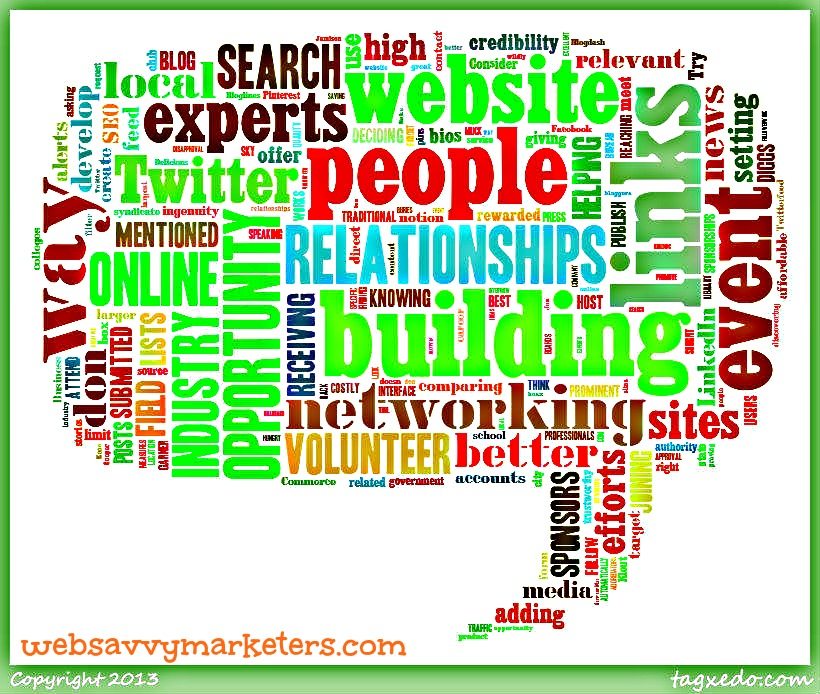 Building links for better SEO is like building relationships with people. Remember, websites don’t offer links. It’s the people who decide what to publish who give you links to your site.
Building links for better SEO is like building relationships with people. Remember, websites don’t offer links. It’s the people who decide what to publish who give you links to your site.
Use your people skills when building links to your website with these 5 simple ideas.
1. Network with other experts.
Find the experts in your industry through networking and see if you can interview them. This will attract readers and build your credibility. Attend events or host your own event to create link-building opportunities.
Try Followerwonk to find other people through searching Twitter bios or comparing competitor accounts to find new users to follow or target. Interview an expert you meet online, or a prominent blogger in your field.
2. Volunteer and sponsor in your community.
One of the best ways to build links is by reaching out and helping others. The traditional notion of “giving is receiving” works the same way with building links. Often your efforts will be rewarded with link back if sponsors or volunteers are listed on the website.
Local event sponsorships are typically affordable, and they will give more direct exposure than a larger, more costly event.
Think out of the box and garner a press mention for your ingenuity. The sky’s the limit with what you can do to interface and help out. Just being at the event as a volunteer is a form of networking.
Consider speaking at local high school and colleges where industry professionals are generally sought as career opportunity contact for an industry. A student organization that’s related to your field is another setting where your efforts in building relationships could develop into something even beyond a link.
3. Join an organization or club.
By joining the local Chamber of Commerce and the Better Business Bureau, your membership will develop a link back to you. Submit your website to relevant government sites in your city and state. Don’t forget asking your library as well!
These high-quality links generate traffic and authority, telling Google you’re a trustworthy source.
4. Social media and relationship building.
Building links through social media is another way to syndicate your blog posts with the right people. You can use Followerwonk or Klout for Twitter, or use Muck Rack for finding journalists.
Search boards or pins on Pinterest to find relevant people, and on LinkedIn you can filter out by adding a specific geographic location in your search. Twitterfeed will feed your blog content to Facebook, Twitter, and LinkedIn automatically.
For more opportunities for link-building, look into Digg, which measures stories with “diggs” of approval (or buries it in disapproval) or Delicious.com, a great link-saving and link-discovering tool.
Blogdash is an excellent way to build relationships with other bloggers, as well as promote your product or service.
5. Create and curate with links.
When you give attribution, links back, and credit to someone else’s work, you are contributing to the sharing economy. Beyond just sharing the content, we are sharing our endorsements as well as our audiences.
Sometimes, this kind of content curation can smile back at you with another share, linking back to your efforts, as it did here:
Big Thanks to @KaCeeAngels for her awesome content curation with a blog piece I did a few weeks ago. http://t.co/Sb35HMw5
— Kaboomis Copy (@KaboomisCopy) February 8, 2013
Bonus Tip:
Know where you’re being linked.
Part of building links is knowing where you are being linked. Set a Google alert for your company name to receive alerts for whenever it’s mentioned online. This way you can also tell if your name doesn’t have a link. This might be an opportunity to request that one be added.
If you’re still hungry for more ways to build links, this post by Jon Cooper lists some wildly creative link-building ideas. One of my favorite is the billboard hoax submitted by Kane Jamison, proving you can have fun and still build links.